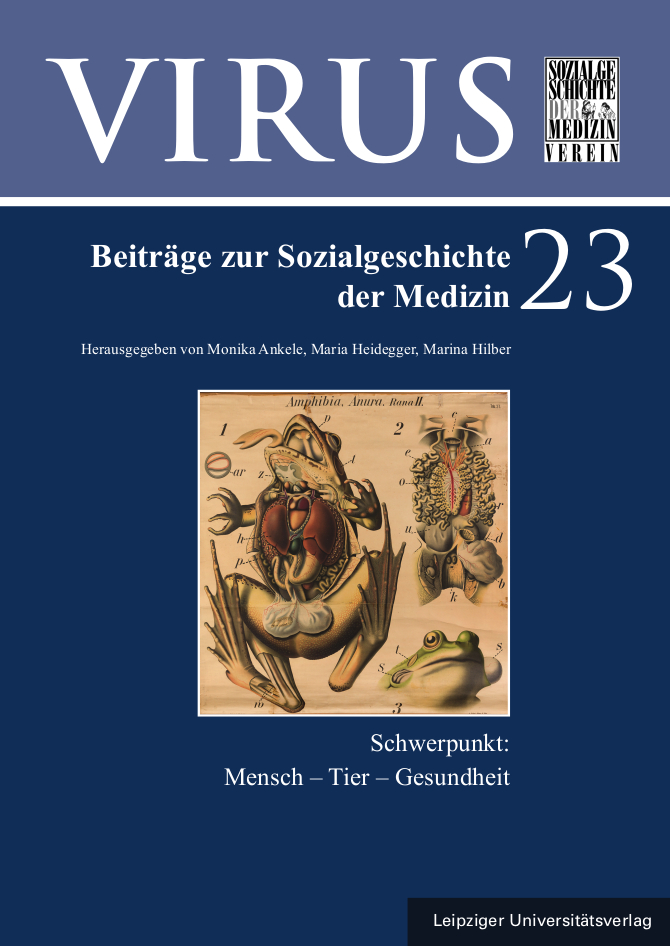
VIRUS Band 23, pp. 145-170, 2025/04/24
Schwerpunkt: Mensch - Tier - Gesundheit

This paper analyzes the reactions of scientists working with animal experiments to the increa-sing disapproval of this type of research by large parts of the society in German-speaking countries in the last quarter of the 20th century. It examines the statements made by individual scientists and research institutions such as the Deutsche Forschungsgemeinschaft and the Max- Planck-Gesellschaft, which were intended to appeal to a broad audience. They chose a con-frontational approach by presenting themselves as the exclusive voice of reason and science and their practice as pure necessity, while accusing critics from various social movements of ignorance, anti-scientific sentiment and excessive emotionalism. Public and academic protest did not diminish, but actually increased. The major research institutions in particular failed to address the emotions as an essential factor in the complex ethical conflict and their social impact.
Keywords: Animal experimentation, animal ethics, emotions, Deutsche Forschungsgemeinschaft, 1970s to 1990s, Germany